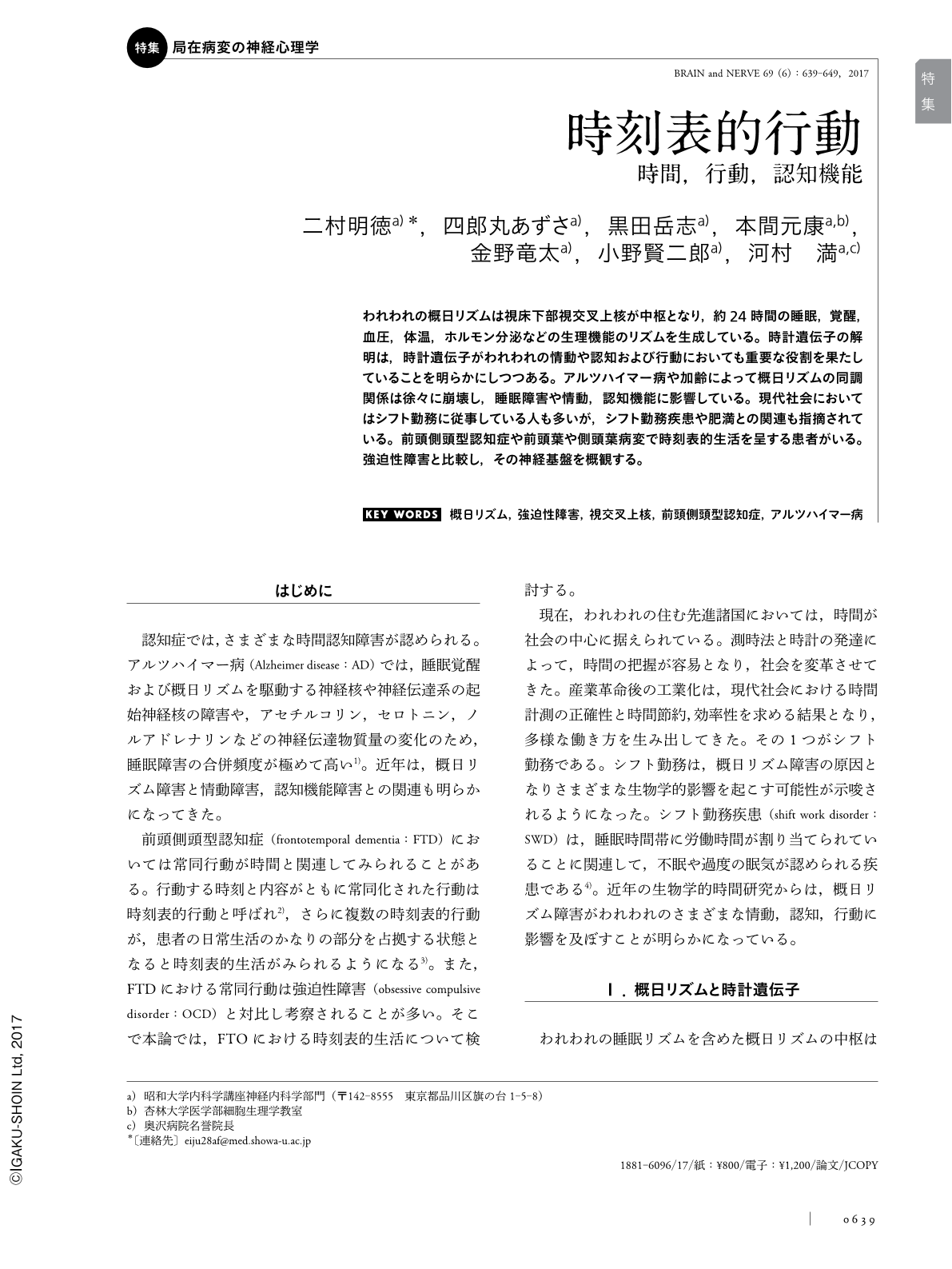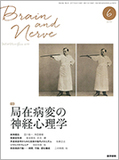Japanese
English
- 有料閲覧
- Abstract 文献概要
- 1ページ目 Look Inside
- 参考文献 Reference
われわれの概日リズムは視床下部視交叉上核が中枢となり,約24時間の睡眠,覚醒,血圧,体温,ホルモン分泌などの生理機能のリズムを生成している。時計遺伝子の解明は,時計遺伝子がわれわれの情動や認知および行動においても重要な役割を果たしていることを明らかにしつつある。アルツハイマー病や加齢によって概日リズムの同調関係は徐々に崩壊し,睡眠障害や情動,認知機能に影響している。現代社会においてはシフト勤務に従事している人も多いが,シフト勤務疾患や肥満との関連も指摘されている。前頭側頭型認知症や前頭葉や側頭葉病変で時刻表的生活を呈する患者がいる。強迫性障害と比較し,その神経基盤を概観する。
Abstract
The nerve center responsible for controlling our circadian rhythm is located in a cluster of cells known as the suprachiasmatic nucleus in the hypothalamus. Various physiological functions such as sleep, arousal, blood pressure, body temperature, and hormone secretion are regulated in a 24-hour rhythm by this circuit. Somatic cells of other organs have a peripheral clock gene and by synchronizing the rhythm of the central and peripheral clocks, it is possible to live a healthy life. Due to aging and degenerative disease, circadian rhythm gradually collapses. Factors that can contribute to this include reduced expression of the time gene associated with photo stimulation, a reduction in neurotransmitter levels, and reduced melatonin production. Biological clocks play an important role in our emotions, cognitive function, and behavior. Sleep disorders and metabolic disease related to the circadian rhythm affect metabolic and endocrine activities via the autonomic nervous system and the intestinal bacterial flora. Shift work disorder is associated with insomnia and excessive drowsiness as individuals often work during their sleeping hours. Now time management is placed at the center of our society, and it is important to evaluate the medical risk of engaging in shift work. In frontotemporal dementia (FTD), the stereotypical behaviors may be associated with time. In some patients, multiple timed behaviors occupy a considerable part of the patient's daily life. Stereotypical behaviors in FTD are often considered in contrast to obsessive-compulsive disease (OCD). Studies of OCD have found a close correlation between clinical symptoms, cognitive function, and brain function.

Copyright © 2017, Igaku-Shoin Ltd. All rights reserved.


